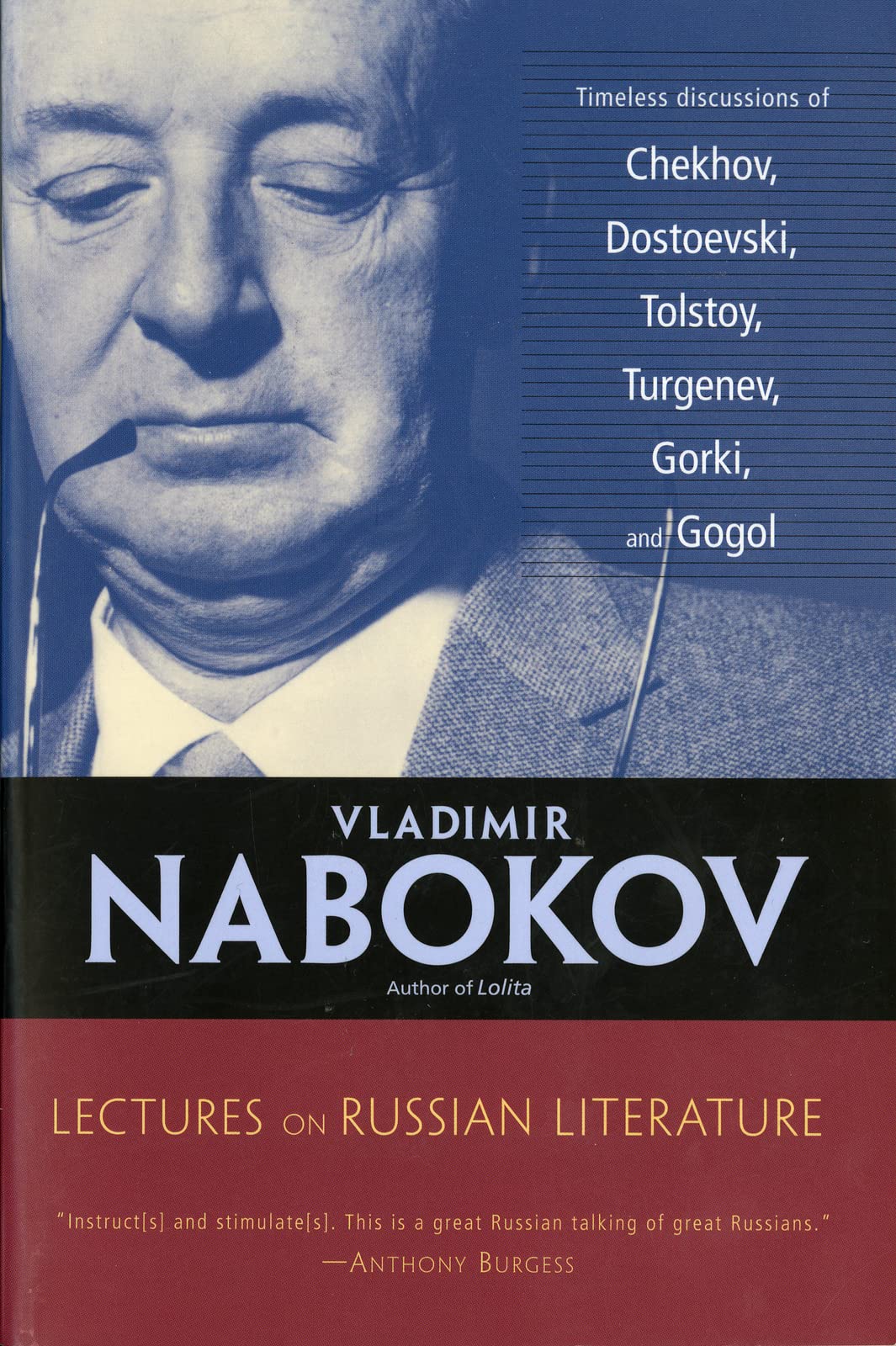

Full description not available
A**R
Nabokov
Cara chato e exigente, mas ótimo crítico.É muito difícil encontrar livros de história da literatura russa, mas este livro já é uma introdução aceitável.
C**N
Excellent analysis of major Russian writers
I am a great admirer of Nabokov and I must say that when reading this book you immediately go back to your favorite Russian writers to read them again with a fresh eye!
A**2
Five Stars
the master speaks.
G**N
A master's class on the art of reading
Nabokov is a native of world literature. So it is no surprise that as he is taking the reader on a guided tour of his land, his strong literary opinions easily navigate centuries and continents of literary landscape. However, being an emotional as well as scholarly narrator, Nabokov naturally gravitates to his favorite corners of the world. He is a guide giving a tour of his native city and adding more intimate detail and color when talking about the streets where he grew up. Russian literature must occupy a very special place in his heart, since it permeated his Russian childhood, his longing for which he so beautifully described in "Speak, Memory". In "Lectures on Russian Literature", Nabokov is noticeably closer to the Russian writers than he is to the European writers in his previous volume, "Lectures on Literature" (itself very enjoyable). His spectrum of vision is wider, embracing multiple works of a writer and his personal qualities. The resulting picture is richer, the contrasts of the temperaments and styles make the writers stand out: Chekhov's altruism and Turgenev's vanity, Gogol's impressionist colors and Gorky's clichés, Dostoevsky's cold reason overwhelming his art and Tolstoy's "mighty" art "transcending the sermon", the believable and coherent worlds of Chekhov or Tolstoy and Dostoevsky's internally contradicting world or Gorky's "schematic characters and the mechanical structure of the story"...Here Nabokov continues his thought that a writer is mostly a creative artist, rather than a historian or philosopher. This is how he summarized Gogol's desperate attempts to collect facts for the second part of "Dead Souls": "[Gogol] was in the worst plight that a writer can be in: he had lost the gift of imagining facts and believed that facts may exist by themselves" (Gogol was asking his friends to supply him with descriptions of life around them which he could use in his art). Contrast with it Nabokov's admiration of Chekhov's writing for being so true to life. Chekhov invented his characters, but did it so well that they naturally created a coherent world. Nabokov always put imagination and style at the top of the writer's arsenal, and much above any "reality" (which he always mentioned in quotation marks).Nabokov clearly prefers characters to reveal themselves rather than be explained by the author: for example, where Chekhov let his characters act (not surprisingly, Chekhov was a great playwright), Turgenev tended to over-explain. In "Fathers and Sons", he uses epilogue to describe what happened next in the story. In the scene where Bazarov's father embraces his wife "harder than ever", Turgenev feels the need to explain that this happened because "she had consoled him in his grief". For the same reason Dostoevsky, whose characters Nabokov sees as "mainly ideas in the likeness of people", was not one of his favorite authors. Primacy of idea over form and style was anathema to Nabokov. Both Turgenev and Dostoevsky were too visible on the page for his taste.Personal style of a writer enjoys a special consideration throughout these lectures. While Chekhov is presented as a master of light touch, of suggestion, Dostoevsky appears repetitive, dogmatic, hurried and over-working. As an illustration, Nabokov points out that to set up the murder in "Crime and Punishment" the author needed a whole confluence of circumstances: "Raskolnikov's poverty, self-sacrifice of his sister and utter moral debasement of the intended victim".Nabokov believes that literature should not be gulped, but "taken and broken into bits, pulled apart, squashed", gradually releasing its flavors. One could hear a master chef admiring the virtues of spice freshly crushed in a mortar. His obvious delight in attending to the minute flavors of the novel makes his lectures so enjoyable and unique.
A**S
Literary Snobbery at its Finest
Nabokov’s lectures on Russian literature are actually, in spite of his birth country, less well known than his lectures on non-Russian literature. But they’re worth reading even if a bit of literary snobbery is involved.Nabokov dissects Gogol, Tolstoy and Chekov and makes you understand why they’re immortals. You see how Tolstoy uses metaphor to convey moral sentiments. You see how different characters’ time appears to run at different speeds in Anna Karenina—despite an architectonic structure that keeps calendrical time accurately. You see how Chekov uses the arbitrary detail to make his characters seemingly realer than some historical personages recounting their life in memoirs.There is, as mentioned, a bit of snobbery involved. Not only is all of Socialist Realism trashed, with And Quiet Flows the Don mentioned by name, but even Dostoevsky comes in for harsh criticism. According to Nabokov, his novels lack the feel of imagined believability and are no more than a mishmash of mystery novels with sentimental Christianity. I doubt many critics would agree.But there is something of a frisson from reading Nabokov discuss these oft-read works. Even if you thoroughly remember the plot you experience them again, to reference Proust, through another’s eyes. And what an incisive vision it is.Highly recommended to devotees of the great era of Russian literature that roughly spanned the nineteenth century.
Trustpilot
3 weeks ago
1 month ago